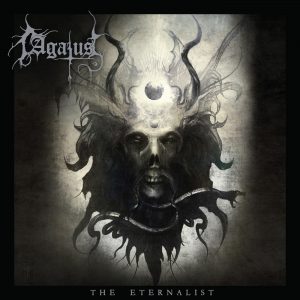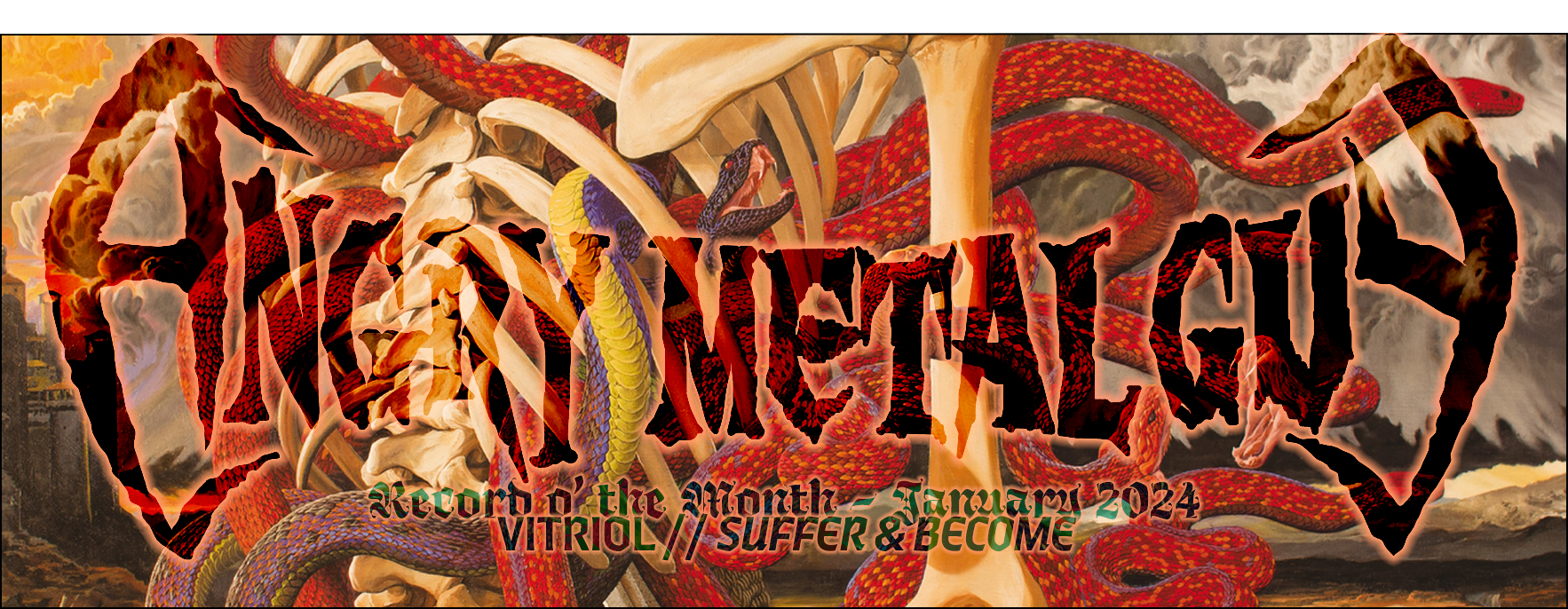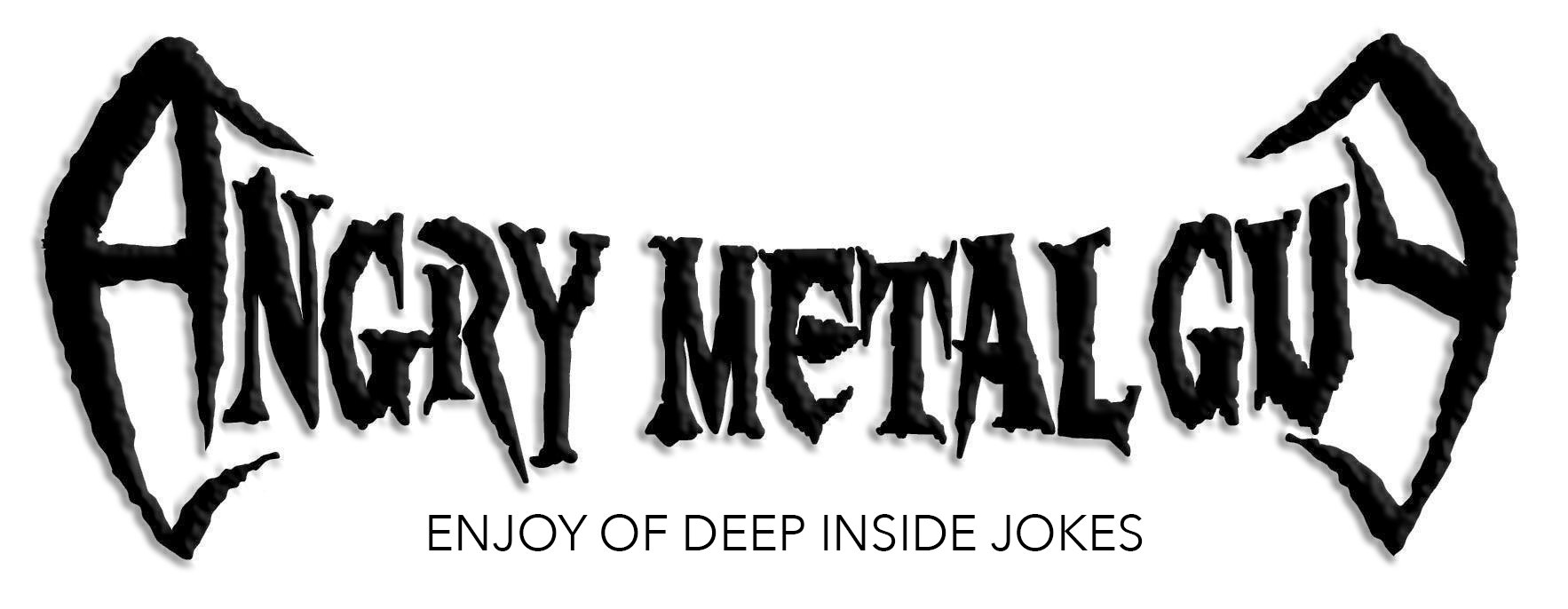 In today’s fast-paced world where instant gratification is king, once a winning formula has been established, it’s tempting for many bands to play it safe, shy away from experimentation, and resort to simply churning out variations on the same record every few years (*cough* Amon Amarth *cough*). I always have a lot of respect therefore for musicians who are willing to take a risk, mix things up a bit and diversify their style – creating their own record as opposed to simply writing what is expected of them. Agatus are one such band. Starting life as an underground black metal act in Athens in the early nineties, over the years the Greek duo have gradually adopted a more traditional heavy metal sound, with their most unabashed demonstration of this evolution being The Eternalist. Owing to the relatively small size of their discography in relation to the length of time they’ve been active – The Eternalist is only their third full-length studio album in over 20 years. At this stage, one poor outing has the potential to tarnish their legacy quite significantly, so the stakes are high. Whether or not their change in direction ultimately pays off, it’s difficult not to admire their moxie.
In today’s fast-paced world where instant gratification is king, once a winning formula has been established, it’s tempting for many bands to play it safe, shy away from experimentation, and resort to simply churning out variations on the same record every few years (*cough* Amon Amarth *cough*). I always have a lot of respect therefore for musicians who are willing to take a risk, mix things up a bit and diversify their style – creating their own record as opposed to simply writing what is expected of them. Agatus are one such band. Starting life as an underground black metal act in Athens in the early nineties, over the years the Greek duo have gradually adopted a more traditional heavy metal sound, with their most unabashed demonstration of this evolution being The Eternalist. Owing to the relatively small size of their discography in relation to the length of time they’ve been active – The Eternalist is only their third full-length studio album in over 20 years. At this stage, one poor outing has the potential to tarnish their legacy quite significantly, so the stakes are high. Whether or not their change in direction ultimately pays off, it’s difficult not to admire their moxie.
And what a change in direction it is too. The Agatus heard on The Eternalist is virtually unrecognizable as the same band who wrote Dawn of Martyrdom and The Weaving Fates, having shed their black metal skin almost entirely. Upon firing up the record, what the listener is presented with instead is a healthy dollop of ‘80s nostalgia, straight out of the annals of NWoBHM lore, paying homage to titans such as Diamond Head and Grim Reaper. Rather than blast beats and tremolo picking, the record is characterized by its downtrodden, doomy vibe and groove-laden solos. Eponymous opener “The Eternalist” and “Dreamer” showcase riffs that would sound right at home in the context of an Angel Witch record, and stylistically, the soaring wah-wah tone of “Perils of the Sea (Part II)” has more in common with Y&T than a band who have previously collaborated with the likes of Absu and Varathron. It’s clear that Agatus set out here to emulate the traditional stylings of the early heavy metal scene and in this regard, they absolutely nailed it.
Make no mistake, however, while the sound that they have created here is damned impressive, The Eternalist does have its flaws. Most of the record strolls along at a mid-tempo pace, and even brisker offerings, such as “The Invisible (Fifth Portal to Atlantis),” still come across as a bit languid. At times it feels as though they’re actively reining themselves in, and on more than one occasion I found myself urging the band to just crack on and let rip. It doesn’t completely spoil the album by any means, but it does lend it a bit of a half-baked vibe at times, which is rather a shame.
 Making up for The Eternalist’s somewhat geriatric pace, however is its production value, which is downright glorious. Brothers Eskarth the Dark One and Archon Vorskaath (or Chris and Dimitros as they’re known to their mom) carry out all of the instrumental duties themselves, and the production is nicely balanced, with a warm, analog-like quality throughout. It really does sound very pretty indeed and provides the entire record with an authentic feel that takes skill to execute convincingly.
Making up for The Eternalist’s somewhat geriatric pace, however is its production value, which is downright glorious. Brothers Eskarth the Dark One and Archon Vorskaath (or Chris and Dimitros as they’re known to their mom) carry out all of the instrumental duties themselves, and the production is nicely balanced, with a warm, analog-like quality throughout. It really does sound very pretty indeed and provides the entire record with an authentic feel that takes skill to execute convincingly.
Its faults notwithstanding, The Eternalist is a formidable album, and particularly when considering the band’s roots lie on an entirely different plane of the metal spectrum altogether, although I’ll admit to being a little unsure as to how it will be received by fans of their earlier work. Black metal devotees are hardly renowned for their open-mindedness and, unless your name is Fenriz or Nocturno Culto, branching away from the style almost altogether without being hung, drawn and quartered by the corpsepaint brigade is no small undertaking. For Agatus’ sake, therefore, I hope The Eternalist is given the time of day it deserves. It’s by no means perfect, however, it’s a solid, well-executed record that demonstrates ambition, not to mention a stubborn unwillingness to rest on their laurels and get too comfortable. If nothing else, they deserve plaudits for this alone.
Rating: 3.0/5.0
DR: 11 | Format Reviewed: 320 kbps mp3
Label: Hell’s Headbangers
Websites: agatus-greece.bandcamp.com | facebook.com/AgatusOfficial
Releases Worldwide: October 9th, 2016
Written By: Pándaros
 Were a ghost to appear in the night and tell me that a respectable black-metal band would release an album, and that that album would stretch the genre by reverting back to the classics, to NWOBHM and to 80s thrash, I would have lept from my bed and begun googling leaks of the record foretold. Black metal has branched in so many directions, but its legion subgenres fit for the most part into two pockets of a Venn diagram. One holds the kvlty loyalists, the other the millennial trailblazers, looking to toss some extra reverb and poppy chord progressions for mood and ambience. With The Eternalist, Greek mainstay Agatus (of Dawn of Martyrdom and The Weaving Fates fame) make the nifty move of citing sources less common in the black-metal paradigm, but so canonical, so unassailable to those who rock, that even the ones denying Darkthrone’s existence after Sardonic Wrath would admit to having heard (and loved) this material too.
Were a ghost to appear in the night and tell me that a respectable black-metal band would release an album, and that that album would stretch the genre by reverting back to the classics, to NWOBHM and to 80s thrash, I would have lept from my bed and begun googling leaks of the record foretold. Black metal has branched in so many directions, but its legion subgenres fit for the most part into two pockets of a Venn diagram. One holds the kvlty loyalists, the other the millennial trailblazers, looking to toss some extra reverb and poppy chord progressions for mood and ambience. With The Eternalist, Greek mainstay Agatus (of Dawn of Martyrdom and The Weaving Fates fame) make the nifty move of citing sources less common in the black-metal paradigm, but so canonical, so unassailable to those who rock, that even the ones denying Darkthrone’s existence after Sardonic Wrath would admit to having heard (and loved) this material too.
It’s all there in the first five seconds: the title track opens with a hard, tight hook that would’ve felt at home on Blizzard of Oz, Screaming for Vengeance, or Piece of Mind, before the keyboard sprawls synthesizer tones on top, expressing a kind of self-delight with the riff. Such relics are littered throughout the record, thanks mostly to the robust twin-guitar work from lead man, “The Dark” (formerly, “Eskarth the Dark One”). “The Oath (Of Magic and Fire),” begins with thrashy trills that sound eerily similar to those opening “Seek & Destroy,” and “Dreamer” has a palm-muted section that could have been taken from the bridge to an early Van Halen song. If The Eternalist does hold up as black metal, which some might debate, it wields a heavier nostalgia than any I can remember hearing in the genre. With each throwback the album almost seems to ask, “who couldn’t like this?”
 Well, if “this” refers to each old-school riff, very few. But it’s with good reason people don’t clamor to see their local Iron Maiden cover band the way they do for Iron Maiden. Context matters, and it’s a band’s job to perfect whatever lick they can mine, while also laying it down convincingly on a stage or in a studio. It need not be masterful: in that cinematic masterpiece, School of Rock, there’s something right about the kids’ ad-hoc jam to “Smoke on the Water”—their smiles show how much they love it. Unfortunately, Agatus never seem so inspired, and therefore never so inspiring.
Well, if “this” refers to each old-school riff, very few. But it’s with good reason people don’t clamor to see their local Iron Maiden cover band the way they do for Iron Maiden. Context matters, and it’s a band’s job to perfect whatever lick they can mine, while also laying it down convincingly on a stage or in a studio. It need not be masterful: in that cinematic masterpiece, School of Rock, there’s something right about the kids’ ad-hoc jam to “Smoke on the Water”—their smiles show how much they love it. Unfortunately, Agatus never seem so inspired, and therefore never so inspiring.
The production is partly to blame. It’s hard not to sound empty when the instruments, crammed in their corners, almost never get to share space on the recording. This sterility not only comes as a surprise given its deviation from the fuzzier sonics of traditional black metal—and Agatus’s earlier, well-liked releases — but also draws attention to the album’s weakest component, the vocals. Whether you prefer clean or harsh, you know they are bad when a singer, so unsuccessful at both, renders them nearly indistinguishable. The songwriting hardly redeems this flaw, because even a talent would have a hard time making lines like “Children became kings. / Kings became gods. / Gods were worshipped / and immortalized by men” not seem thoughtlessly cobbled together.
And really it’s the cobbled together-ness of this release that turns a great idea into a failure so hard to listen to. However wonderful it would have been for Agatus to find middle ground in that Venn diagram, welcoming all fans of black metal with their paradoxically reverent method of breaking convention, The Eternalist does not offer much more than a self-satisfaction at its own citation. Agatus focus all their attention on the quote, yet somehow neglect what is necessary to accommodate it. Thus, they actually waste what they source. Listening to the album I wanted so badly to throw on some old Judas Priest just to make sure my love for them was not just golden-age bias (it wasn’t). Even if the duality in black-metal becomes a stagnant fixture, I would rather wait for a more careful band to dig up the greats than feel such doubt again.
Rating: 1.5/5.0


















